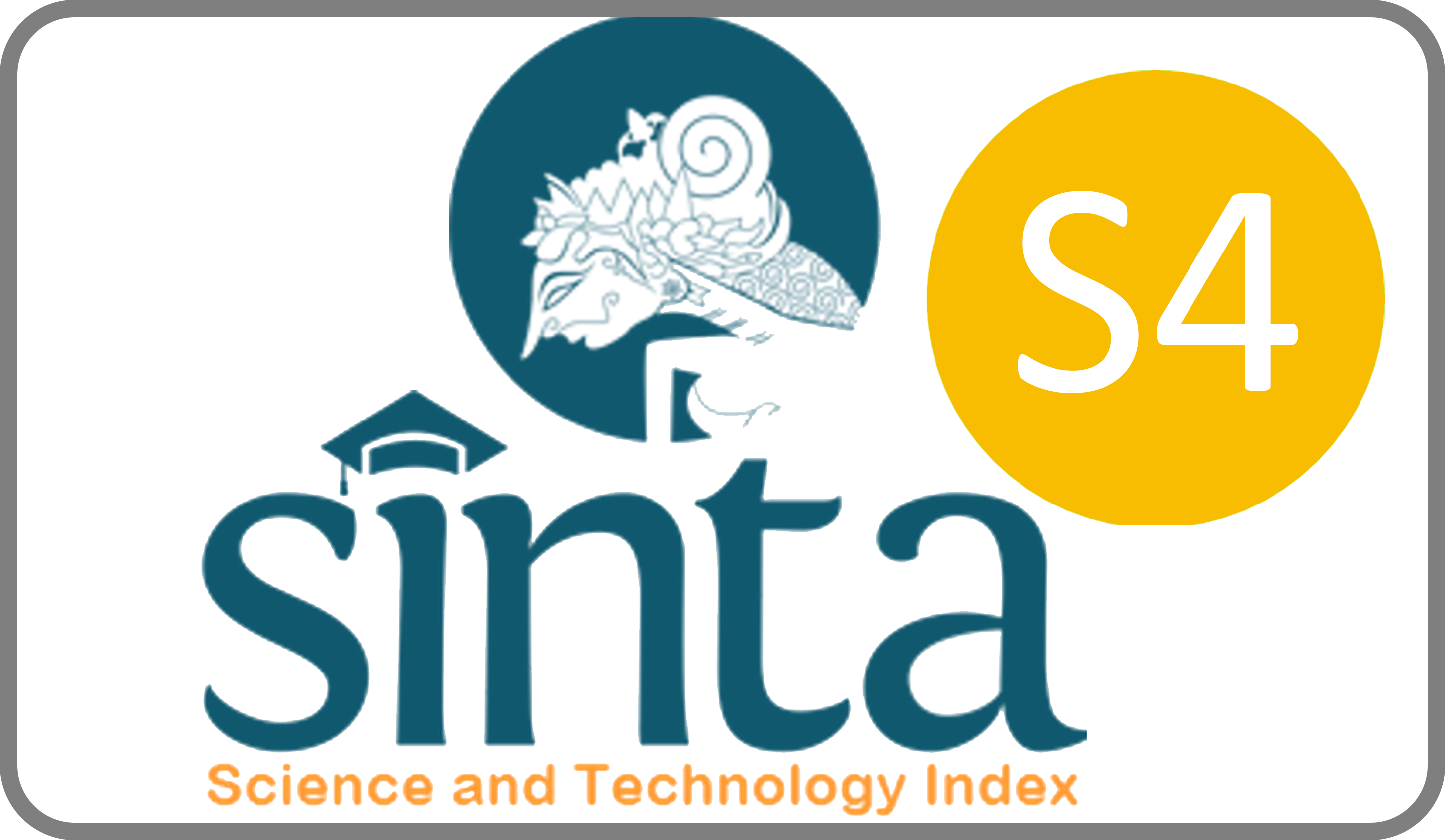HOUSEWIVES EMPOWERMENT THROUGH WASTE RECYCLE BAGS TRAINING
Downloads
The Garbage Bank is a strategy for implementing the Reduce, Reuse, Recycle (3R) principles in waste management in society. Airlangga University through the community program held a Garbage Bank activity located in RT 20 Tanah Kali Kedinding Village. This activity was attended by ten participants from housewives in the area. Since 2020, the Garbage Bank in this area has been carried out, however it still needs a follow-up community service programs so that the Garbage Bank becomes more representative and productive. The Surabaya City Government's policy that prohibits the use of plastic bags in shops/malls provides an opportunity for the Kali Kedinding Land Waste Bank Manager to process inorganic waste into useful and economically valuable items such as shopping bags. In this regard, housewives as waste bank managers also have a strong will to manage inorganic waste. However, there are several problems related to the development of expertise in making shopping bags from inorganic household waste. Not all housewives have a good understanding of using inorganic waste and processing it into shopping bags that have a sale value. Based on these problems, this community service program is directed at providing training on sewing bags from inorganic household waste, training on selling products online through marketplaces, training on business financial management, and training on business organizational governance. The training was conducted in four meetings with a different topic each week. It is hoped that this program can increase awarness about waste management and improve the community's economy. This is in accordance with the indicators of the Sustainable Development Goals (SDGs), namely increasing economic growth, productive employment opportunities, and decent work for the community, and focusing on the efficient use of resources, minimizing waste, and increasing the production of recycled waste in the environment.
Amir, N. O., & Mustikawati, D. (2019). Penerapan Digital Marketing dalam Meningkatkan Pendapatan Pedagang Bunga di Desa Sidomulyo Kota Batu. Jurnal Ekonomi Pertanian Dan Agribisnis, 3(4), 681–688. https://doi.org/10.21776/ub.jepa.2019.003.04.3
Baskoro, P. A., & Kurniawan, B. (2021). Implementasi Kebijakan Penanganan Sampah Di Kecamatan Taman Kabupaten Sidoarjo. Publika, 149–158. https://doi.org/10.26740/publika.v9n2.p149-158
Bintarsih Sekarningrum, D. Y. dan S. S. (2017). Pengembangan Bank Sampah Pada Masyarakat Di Bantaran Sungai Cikapundung. Universitas Padjadjaran, 1(5), 292–298. http://jurnal.unpad.ac.id/pkm/article/download/16414/8010
Dhokhikah, Y., Trihadiningrum, Y., & Sunaryo, S. (2015). Community participation in household solid waste reduction in Surabaya, Indonesia. Resources, Conservation and Recycling, 102, 153–162. https://doi.org/10.1016/j.resconrec.2015.06.013
Hartati, S. (2013). MIKRO , KECIL DAN MENENGAH Oleh : Sri Hartati. Jurnal Akutansi Dan Investasi, 1–6.
Hayati, M. K. U. H. I. (2020). Peran Bank Sampah Dalam Meningkatkan Pendapatan Ibu Rumah Tangga di Fakultas Agama Islam Universitas Muhammadiyah Sumatera Utara Email : mutiahkhaira@umsu.ac.id. Jurnal Pengabdian Masyarakat, 2(2), 187–195. http://jurnal.umsu.ac.id/index.php/IHSAN/article/view/5332
Kementerian PPN. (2020). Pedoman Teknis Penyusunan Rencana Aksi - Edisi II Tujuan Pembangunan Berkelanjutan/ Sustainable Development Goals (TPB/SDGs). Kementerian PPN.
Mustika, W., & Kurniawati, D. M. (2022). Pengaruh Pemasaran Digital Terhadap Minat Beli Handuk Pada Marketplace "X.” Seri Seminar Nasional Ke IV Universitas Tarumanegara, 709–715.
Nurmalasari, M. (2018). Modul Statistik Inferens. Universitas Esa Unggul, Mik 411, 1–16.
Peraturan Walikota Nomor 16 Tahun 2022 Tentang Pengurangan Penggunaan Kantong Plastik di Kota Surabaya
Sabiq Hilal Al Falih, M., Rizqi, R. M., & Adhitya Ananda, N. (2019). Pengelolaan Keuangan Dan Pengembangan Usaha Pada Usaha Mikro Kecil Menengah (Studi Kasus Pada Umkm Madu Hutan Lestari Sumbawa). Jurnal Manajemen Dan Bisnis, 2(1). https://doi.org/10.37673/jmb.v2i1.302
Sabrina, E. A., Zainul, H. M., & Mayvita, P. A. (2018). Analisis Manajemen Keuangan pada Usaha Kecil Menengah Kacang Jaruk Hj, Ati Barabai Kabupaten Hulu Sungai Tengah Kalimantan Selatan. Jurnal UNISKA, 1(1), 1–8. http://eprints.uniska-bjm.ac.id/2309/
Sabrina, K. P. (2021). Analisis Penerapan Tata Kelola Pada Kelompok Usaha Mikro Kecil Dan Menengah (Umkm) Di Kecamatan Semarang Barat. JAKA (Jurnal Akuntansi, Keuangan, Dan Auditing), 1(1), 65–78. https://doi.org/10.56696/jaka.v2i1.5149
Suryani, A. S. (2017). Peran Bank Sampah Dalam Efektivitas Pengelolaan Sampah (Studi Kasus Bank Sampah Malang). Aspirasi, 5(1), 71–84. https://dprexternal3.dpr.go.id/index.php/aspirasi/article/view/447/344
Syafrini, D. (2014). BANK SAMPAH: MEKANISME PENDORONG PERUBAHAN DALAM KEHIDUPAN MASYARAKAT (Studi Kasus: Bank Sampah Barokah Assalam Perumahan Dangau Teduh Kecamatan Lubuk Begalung, Padang). Humanus, 12(2), 155. https://doi.org/10.24036/jh.v12i2.4035
Peraturan Walikota Nomor 16 Tahun 2022 Tentang Pengurangan Penggunaan Kantong Plastik di Kota Surabaya
Copyright (c) 2024 Shochrul Rohmatul Ajija, Rumayya, Yessi Rahmawati, Siti Munawaroh, Zidna Fitriyana, Wahyu Setyorini, Pevi Alif, Mei Sellawati

This work is licensed under a Creative Commons Attribution-ShareAlike 4.0 International License.
JLM by Unair is licensed under a Creative Commons Attribution-ShareAlike 4.0 International License.
1. The journal allows the author to hold the copyright of the article without restrictions.
2. The journal allows the author(s) to retain publishing rights without restrictions
3. The legal formal aspect of journal publication accessibility refers to Creative Commons Attribution Share-Alike (CC BY-SA).
4. The Creative Commons Attribution Share-Alike (CC BY-SA) license allows re-distribution and re-use of a licensed work on the conditions that the creator is appropriately credited and that any derivative work is made available under "the same, similar or a compatible license”. Other than the conditions mentioned above, the editorial board is not responsible for copyright violation.


















